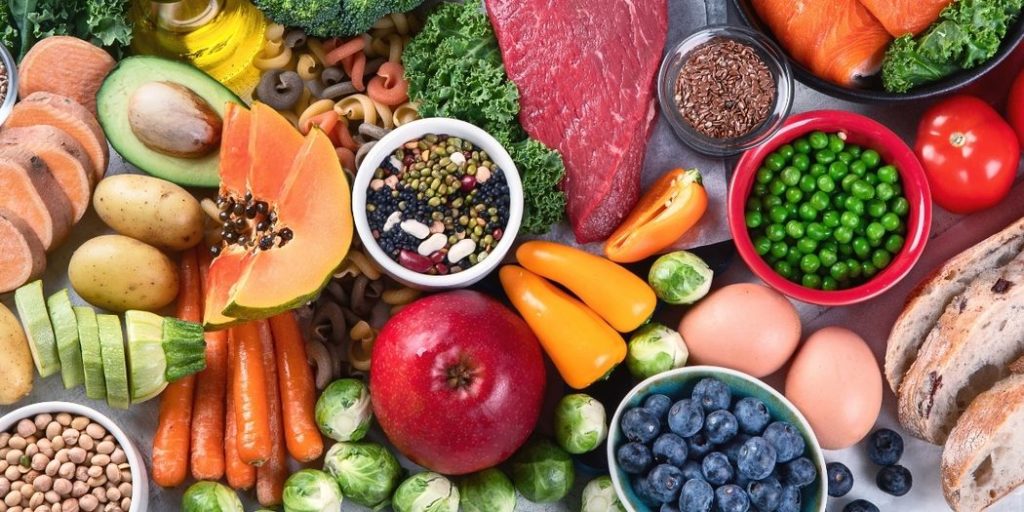Nourishing Through the Ages: A Guide to Nutritional Needs Across The Life Stages
Nutrition isn’t a one size fits all approach. As we journey through life, our bodies undergo various changes, and so do our nutritional requirements. Understanding these changes and adapting our eating accordingly is key to maintaining optimal health and happiness. In this comprehensive guide, we’ll explore how nutrition evolves through different life stages, from our vibrant 30s to our golden years and beyond. Let’s take a look at what to eat to thrive at every age.
Your 30s
Your 30s are often a time of bustling activity, career growth, and perhaps starting a family. Nutrition plays a crucial role in supporting these endeavours and laying the foundation for long-term health. During this stage, it’s essential to focus on nutrient-dense foods that provide sustained energy and support overall vitality.
One significant change in the 30s is the gradual decline in muscle mass and metabolic rate. To counteract this, prioritise lean proteins such as poultry, fish, legumes, and tofu to support muscle maintenance and repair. Aim for a balanced diet rich in fruits, vegetables, whole grains, and healthy fats to provide essential vitamins, minerals, and antioxidants.
Additionally, women in their 30s may benefit from increasing their intake of iron-rich foods to support blood health, especially during menstruation and pregnancy. Incorporating foods like lean red meat, beans, lentils, spinach, and fortified cereals can help meet increased iron needs.
Try these recipes to thrive in your 30s
Teriyaki Chicken Rice Paper Rolls
Your 40s
Entering your 40s brings with it a heightened awareness of health and ageing. As hormone levels fluctuate and metabolism begins to slow, nutrition becomes even more critical for supporting overall wellbeing and preventing age related health issues.
One notable change in the 40s is the decline in bone density, particularly in women approaching menopause. To support bone health, prioritise foods rich in calcium and vitamin D, such as dairy products, leafy greens, and fatty fish like salmon and sardines. Regular weight-bearing exercise is also essential for maintaining bone strength and density.
In addition to bone health, focus on maintaining a healthy weight and managing cholesterol levels to reduce the risk of heart disease and other chronic conditions. Incorporate plenty of protein rich foods like lean meat, poultry, seafood, eggs, and nuts as well as of fibre rich foods like whole grains, fruits, vegetables, and legumes to keep you full and healthy.
Try these recipes to nourish your 40s
Your 50s
As you enter your 50s, hormonal changes, metabolic shifts, and age related changes in body composition continue to influence your nutritional needs. This is a crucial time to prioritise nutrient rich foods and adopt healthy lifestyle habits to support overall health and vitality.
One significant change in the 50s is the increased risk of chronic diseases such as hypertension, diabetes, and certain cancers. To mitigate these risks, focus on reducing sodium intake, limiting processed foods, and incorporating plenty of fruits, vegetables, whole grains, healthy fats and lean proteins into your diet.
Women in their 50s and beyond may also face challenges related to hormonal fluctuations and menopause. To manage symptoms such as hot flashes, mood swings, and sleep disturbances, consider incorporating foods rich in phytoestrogens, such as soy products, flaxseeds, and legumes, into your diet.
Try these recipes to invigorate your 50s
Your 60s and Beyond
As you transition into your 60s and beyond, maintaining optimal nutrition becomes increasingly important for promoting longevity, preserving cognitive function, and supporting overall quality of life. While some nutritional needs may remain constant, others may evolve to address age related changes and health conditions.
One notable change in the 60s is the decline in muscle mass, strength, and physical function, a condition known as sarcopenia. To combat muscle loss and maintain mobility and independence, focus on consuming adequate protein, spread evenly throughout the day, and engage in regular resistance training exercises.
Another key consideration in the 60s and beyond is cognitive health and brain function. Research suggests that certain nutrients, such as omega-3 fatty acids, antioxidants, and vitamins B12 and D, may play a role in preserving cognitive function and reducing the risk of age related cognitive decline and dementia. Incorporate foods rich in these nutrients, such as fatty fish, nuts, seeds and leafy greens into your day to support brain health.
In addition to physical and cognitive health, pay attention to bone health, heart health, and immune function as you age. Continue to prioritise nutrient dense foods, stay hydrated, engage in regular physical activity, and maintain social connections to support overall health and wellbeing.
Try these recipes to nurture your 60s
Try our Salmon Tacos with Avocado Salsa
You’ve got this!
Nutrition is a lifelong journey, and our dietary needs evolve with each passing year. By understanding the nutritional changes that occur during different life stages and making informed food choices, we can optimise our health, vitality, and longevity. Whether you’re in your vibrant 30s, navigating the challenges of your 40s and 50s, or embracing the wisdom of your 60s and beyond, nourish your body with wholesome foods, stay active, and prioritise selfcare to thrive at every age.






